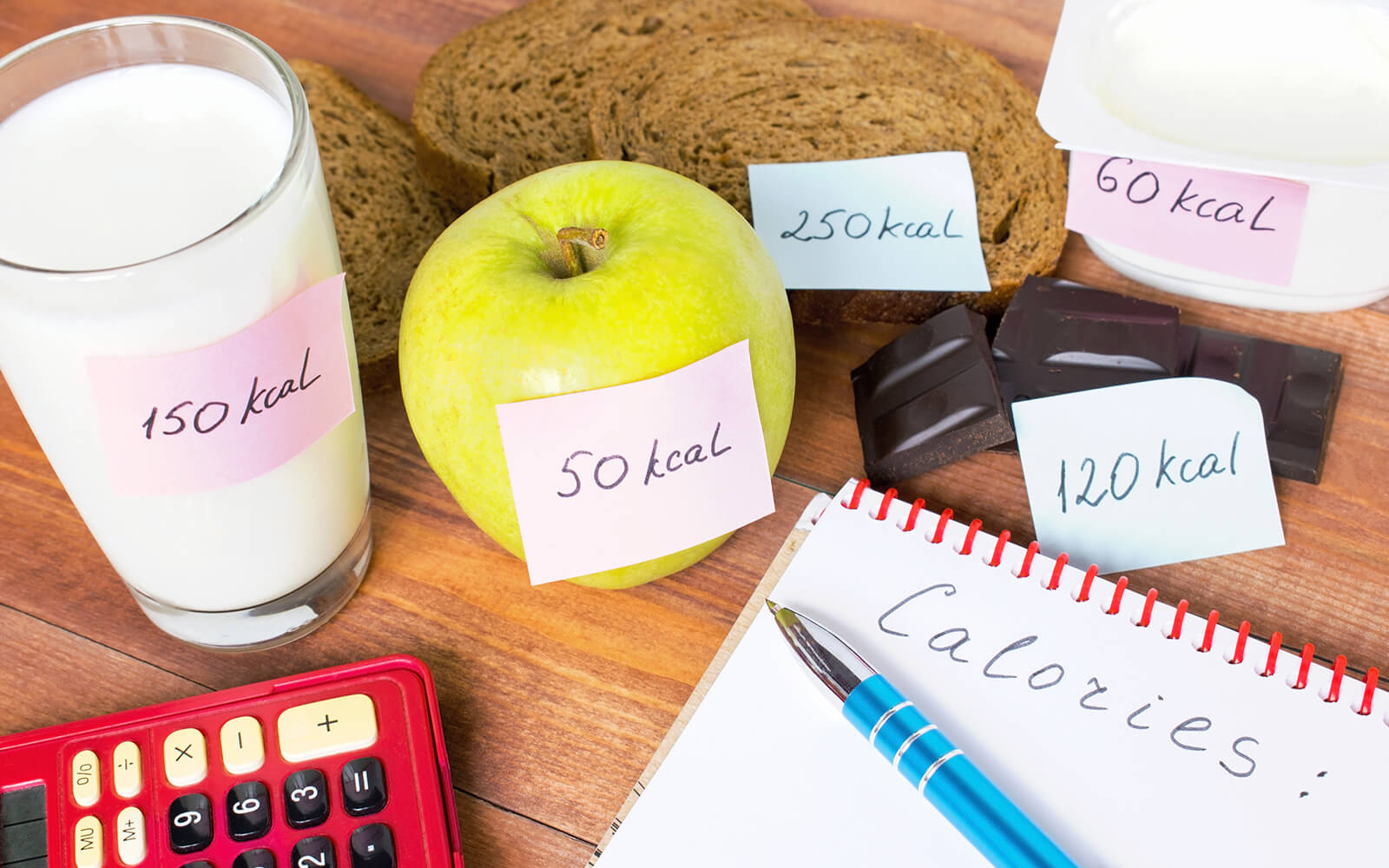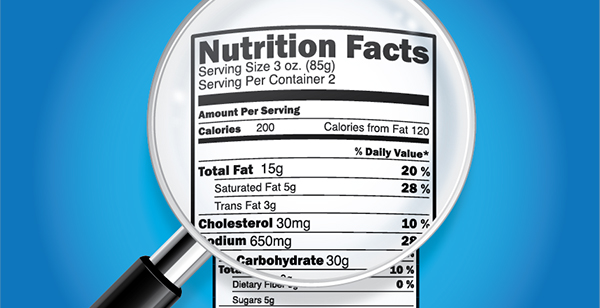Calorie counting has been a popular weight loss strategy for a long time. Many people believe that by diligently tracking and managing their calorie intake, they can effortlessly shed those extra pounds. But does calorie counting truly live up to its weight loss promises? Let’s find out. In our previous blog we wrote about Constipation from Phentermine: 8 Compelling Reasons to Avoid It. In this blog post, we’ll explore the effectiveness of calorie counting and uncover five eye-opening reasons that challenge its efficacy.
Does Calorie Counting Work?
 Before we delve into the reasons that challenge the effectiveness of calorie counting, let’s first examine the concept itself.
Before we delve into the reasons that challenge the effectiveness of calorie counting, let’s first examine the concept itself.
Calorie counting involves closely monitoring the number of calories consumed throughout the day and comparing it to an estimated daily calorie requirement.
The underlying idea is that by creating a calorie deficit, where you consume fewer calories than your body needs, you will lose weight.
However, the reality is not always as straightforward as it seems.
Understanding Calorie Counting
 To grasp the limitations of calorie counting, it’s crucial to understand its basic principles.
To grasp the limitations of calorie counting, it’s crucial to understand its basic principles.
Calorie counting revolves around meticulous tracking and management of calorie intake.
Various methods, such as using mobile apps or keeping food diaries, are employed to monitor calorie consumption.
By keeping a record of calories, individuals aim to gain control over their eating habits and create a calorie deficit.
The Promise of Calorie Counting
Calorie counting is often marketed as a foolproof method for weight loss. It comes with promises of guaranteed results and quick fixes.
However, it’s important to approach these claims with skepticism and consider the following reasons that challenge the effectiveness of calorie counting.
Reason 1: Calorie Quality vs. Quantity
 One significant issue with calorie counting is that it emphasizes the quantity of calories consumed while disregarding the quality of those calories.
One significant issue with calorie counting is that it emphasizes the quantity of calories consumed while disregarding the quality of those calories.
Not all calories are created equal. Foods vary greatly in terms of their nutrient density and overall nutritional value.
Focusing solely on calorie numbers may lead to neglecting essential vitamins, minerals, and macronutrients required for optimal health.
For instance, consuming 200 calories from a sugary soda does not provide the same nutritional value as 200 calories from a nutrient-rich salad.
A diet solely focused on calorie counting may lack the necessary nutrients, leading to deficiencies and potential health complications.
Reason 2: Individual Metabolic Variations
 Metabolism, which refers to the rate at which your body burns calories, varies among individuals.
Metabolism, which refers to the rate at which your body burns calories, varies among individuals.
Factors such as genetics, age, sex, and body composition influence metabolic rate.
Calorie counting fails to account for these individual variations.
Consequently, individuals may experience different weight loss progress, leading to frustration and disappointment.
One person may have a naturally fast metabolism and burn calories more efficiently, while another may have a slower metabolism and struggle to achieve the same results with calorie counting alone.
This variation in metabolic rates makes it challenging to rely solely on calorie counting as a universally effective weight loss method.
Reason 3: Inaccuracy in Calorie Estimations
 Accurately estimating the number of calories in food can be challenging.
Accurately estimating the number of calories in food can be challenging.
Food labels may not always provide accurate calorie counts, and measuring portion sizes precisely can be difficult.
These inaccuracies can significantly impact the effectiveness of calorie counting as a weight loss strategy, as individuals may unknowingly consume more or fewer calories than intended.
Moreover, restaurant meals and homemade dishes often involve complex recipes and cooking methods, making it even more challenging to determine the exact calorie content.
Additionally, factors such as food processing, variations in ingredient quality, and cooking techniques can further contribute to the inaccuracy of calorie estimations.
Reason 4: Psychological Impact
 Obsessively counting calories can have detrimental effects on one’s mental well-being.
Obsessively counting calories can have detrimental effects on one’s mental well-being.
It can create an unhealthy relationship with food, leading to anxiety, guilt, and an overall negative mindset.
Calorie counting may also promote a restrictive mindset, potentially resulting in disordered eating patterns or the development of eating disorders.
Constantly monitoring and restricting calorie intake can lead to feelings of deprivation and frustration.
This can disrupt the enjoyment of food and social interactions, contributing to an unhealthy psychological state.
Weight loss should promote a positive and balanced relationship with food and focus on overall well-being rather than fixating solely on calorie numbers.
Reason 5: Ignoring Nutritional Needs
 Focusing solely on calories neglects other vital aspects of nutrition.
Focusing solely on calories neglects other vital aspects of nutrition.
A balanced diet should not only consider calorie intake but also include essential nutrients.
Prioritizing calorie counting over consuming a wide variety of nutrient-dense foods can result in nutrient deficiencies, leading to potential health issues.
While calorie counting may help in achieving a calorie deficit for weight loss, it does not guarantee a well-rounded and nourishing diet.
Nutrients such as vitamins, minerals, fiber, and antioxidants are crucial for maintaining overall health and supporting bodily functions.
Relying solely on calorie counting may result in missing out on these essential nutrients and negatively impact long-term health.
Counterarguments for Calorie Counting
 Despite various challenges, calorie counting garners support through counterarguments highlighting its benefits.
Despite various challenges, calorie counting garners support through counterarguments highlighting its benefits.
Advocates assert that it enhances awareness, fosters accountability, and aids in sustaining a calorie deficit.
Nevertheless, it remains crucial to scrutinize these claims and recognize the possible constraints and disadvantages tied to this practice.
Calorie counting may overlook nutrient quality, disregard individual metabolic variations, and promote an unhealthy fixation on numbers.
Furthermore, it can induce stress, negatively impact mental well-being, and contribute to disordered eating patterns.
To make an informed decision about whether to adopt this approach, one must carefully evaluate both the advantages and the potential drawbacks of calorie counting.
Conclusion
In conclusion, the effectiveness of calorie counting as a weight loss strategy is not as simple as it may initially appear.
While it may work for some individuals, there are several reasons that challenge its weight loss promises.
From overlooking the quality of calories consumed to disregarding individual metabolic variations and the potential psychological impact, calorie counting presents limitations that need to be considered.
Ultimately, it’s important to approach weight loss holistically, focusing on overall health and well-being rather than solely fixating on numbers.
By adopting a balanced and mindful approach to eating, individuals can achieve sustainable and long-term weight management goals.
Are you ready to break free from the limitations of calorie counting and discover a revolutionary approach to effortless weight loss?
Now that you've gained a deeper understanding of the limitations of calorie counting for weight loss, it's time to discover a more effective and sustainable approach to shedding those extra pounds.
Introducing the PrimaJust weight loss method – a revolutionary way to unlock your metabolism for all-natural weight loss without the need for strict diets or exhausting exercise routines.
Imagine effortlessly losing 1-3 pounds per week, automatically. Say goodbye to the frustration and restrictions of calorie counting.
Our free report unveils The Exact Method to Unlock Your Metabolism, revealing the secrets to achieving your weight loss goals while enjoying a balanced and fulfilling life.
Don't miss out on this opportunity for a healthier, happier you.
Download the report now and take the first step towards a sustainable, enjoyable weight loss journey.
Click the link below to access your free report and embark on your transformation today!
[Source]Free Report
Sharing is caring! If you liked this blog post, please share it with your friends.
Unmissable these game-changing related blog posts
-
Calorie Restriction Diets: Unveiling the Unsustainable Truth
Are you tired of constantly dieting and restricting calories, yet still not achieving your desired…
-
Calorie Restriction Diets Exposed: Optimal Long-Term Approaches
In the elusive quest for effective weight loss, individuals often turn to various diets and…
-
Weight Loss Without Counting Calorie: 7 Proven Calorie-Free Hacks
Losing weight can be a challenging journey, especially when it comes to counting calories. The…
















